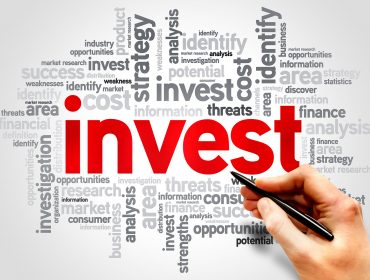Defining value is the most ambiguous problem in our profession. And the inability to define your value can be debilitating for you and the prosperity of your business.
Industry research puts the alpha added by a financial adviser at 3% to 3.75% a year, and the value in terms of helping clients clarify their goals, create better habits and avoid big mistakes can be much greater. In light of this, there is no logical reason for advisers to hesitate to defend their fees when clients challenge them.
But of course, human beings aren’t rational creatures. For many advisers, there is a voice that tells them that prospects won’t pay that much for planning. So they go into prospect meetings assuming they need to defend their fees, instead of being ready to communicate their value and quote their fees without apology or hesitation.
What is the value of planning advice? For simplicity, I’ll propose three simple categories as a potent way to frame your value message:
- Portfolio value includes designing and managing investment portfolios; optimal portfolio construction, tax efficiency and withdrawal sequencing.
- Planning value represents the improved financial outcomes realized through financial planning; consistent savings and investing, managing debt, tax savings and retirement planning fall in this category.
- Personal value reflects an adviser’s ability to help clients navigate their financial lives with greater effectiveness by providing behavioral coaching that fosters trust, emotional well-being and peace of mind.
Here’s how you might communicate this value conversationally:
“John, Jane, I’ve listened to what’s on your mind and what’s important to you when it comes to your money and financial life …”
- Briefly recall their comments about “making sure you start saving more consistently for retirement, knowing Jane and the kids will be okay if something happens to you.”
“Together we’ve framed the outcomes and experiences you want to create, things like …”
- Recount in their words, “retire at 55 with a $10,000-a-month paycheck, sleep at night knowing you have a sound plan in place.”
“My role is to add value to your financial life in three main ways. First, your portfolio value …”
- Explain what and how: “We’ll create tax efficiency that … reduce portfolio risk by … after all, the best way to make money is not to give up big chunks of it.”
“Second, I’ll add value by designing a personal financial plan that reflects your unique situation and seeks to pull all the levers we possibly can to help you achieve your goals …”
- Define the benefits: “Put you on a savings plan that helps you retire at 55 … reduce tax liability and reinvest those savings … to ensure your needs are covered should something happen to John … increase your monthly retirement paycheck by $1,000 a month.”
“Last and most important is my helping you navigate this process.”
- “Too often, our financial decisions are driven by our feelings and fears rather than facts, and studies show investors fare far better with an adviser than without one.”
“This integrated approach affords me the ability to have a very real and measurable impact on your financial life, while also recognizing the biggest impact I can have is giving you a personal path to follow and being a trusted guide to help you along the way. In doing so, I help reduce your risks, maximize your financial returns and achieve your goals by helping you navigate your life with greater clarity, confidence and peace of mind.”
This value-defining talk with a prospect should not be a difficult conversation to have. If the prospect is price-sensitive, or equates price to time, they will have one definition of value, one that I would encourage you not to share.
Building a thriving practice isn’t about building a business case for your value and fees; it’s about building your belief case. After helping one of my adviser clients see that her job is to give prospects the information they need to make informed and educated choices about their financial life, and not to convince or cajole someone to work with her, she radically shifted her value mantra. In the middle of a group coaching session, she stood up and shouted, “Some will, some won’t, so what? Someone’s waiting.”
Since then, she’s radically transformed her practice, narrowing her niche and doubling her income while cutting her hours by almost half, with a 25-to-30-hour workweek that includes Fridays off.
There will always be people who doubt your value, and others who are willing to pay for it. The voices in your head will continue to question your worth if you let them. And yet you know, in the rational part of your brain, that the voice of this article speaks the truth.
In the end, your ability to charge fully for the value you deliver depends entirely on which voices you choose to listen to.










